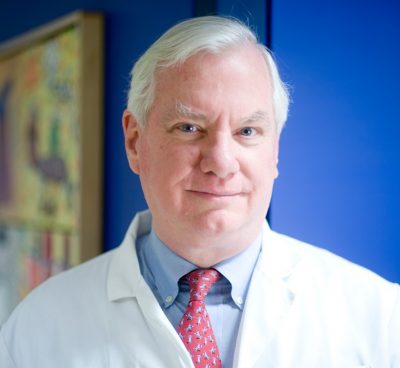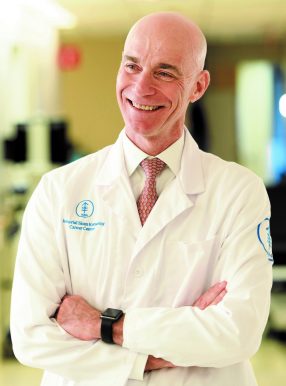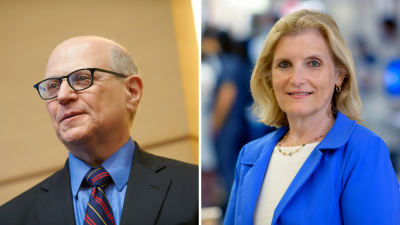
Dr. Richard J. O’Reilly
In a recent feature for OncLive, MSK’s Dr. Richard J. O’Reilly reflects on his influences and long career as a pediatric oncologist. Most striking are the great strides made in treating children with cancer:
“One has to think about the fact that when I was a resident, I was told that it was unethical for people to tell a parent that their child was going to survive leukemia. Unethical. […] Now we’re talking about 90% of kids with the most common type of acute leukemia, acute lymphoblastic leukemia, who can achieve durable remissions and cures. These changes…occurred initially through development of intensive combinations of chemotherapeutic agents coupled with the development of exceptionally effective methods for supportive care that have sustained kids extremely well.”
Still, Dr. O’Reilly continues to push for continued research and questioning the status quo, concluding the article saying, “Never be satisfied.”

